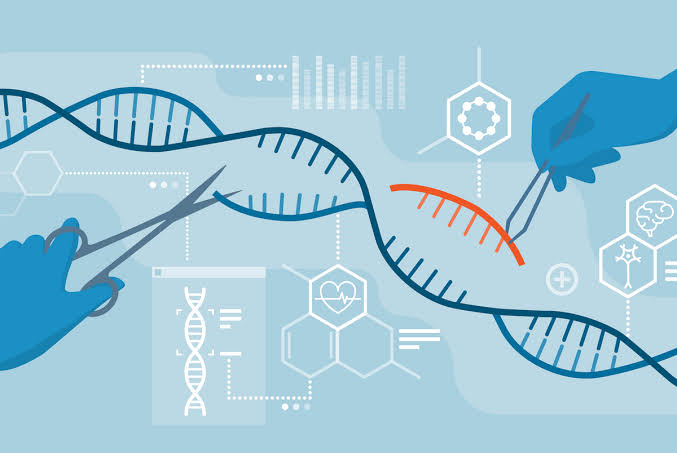Gene editing technology, with its revolutionary potential to alter DNA sequences, has captivated the scientific community and the public alike.
This cutting-edge tool holds promise for addressing genetic disorders, enhancing crop yields, and creating disease-resistant animals.
However, it also raises significant concerns regarding unintended consequences, ethical dilemmas, and the misuse of this powerful technology.
In this article, we will delve into the pros, cons, and concerns surrounding this transformative technology, exploring both its remarkable potential and the responsibility it demands.
What is Gene Editing
This technology, at its core, enables scientists to make precise changes to an organism’s DNA.
The most well-known and widely used gene editing technique is CRISPR-Cas9, which acts as molecular scissors to target and modify specific genes.
With this tool, researchers can potentially cure genetic disorders, enhance agricultural productivity, and mitigate the spread of diseases.
Pros of Gene Editing
- Potential to cure genetic disorders: Gene editing offers hope for individuals affected by genetic disorders. By correcting or removing faulty genes, scientists aim to eliminate the root causes of these conditions. This could potentially lead to groundbreaking treatments for diseases like cystic fibrosis, sickle cell anemia, and Huntington’s disease.
- Improved crop yields and food security: With the world’s population continuing to grow, ensuring food security is of paramount importance. Gene editing can help develop crops that are more resistant to pests, diseases, and harsh environmental conditions. By enhancing their growth and nutritional value, gene editing could play a vital role in combating hunger and malnutrition.
- Creation of disease-resistant animals: Livestock diseases pose significant threats to both animal welfare and human health. This transformative technology a means to engineer disease-resistant animals, reducing the need for antibiotics and improving overall animal well-being. This approach could have far-reaching implications for livestock farming and food safety.
Cons of Gene Editing
- Possibility of unintended consequences: Modifying genes is a complex process, and there is always a risk of unintended consequences. Altering one gene could inadvertently affect others, leading to unforeseen outcomes. Thorough research and extensive testing are necessary to minimize these risks and ensure the safety of gene editing interventions.
- Ethical implications of creating “designer babies”: The prospect of editing human embryos to enhance desirable traits raises profound ethical questions. While gene editing holds the potential to prevent genetic diseases, the idea of genetically modifying embryos for non-medical reasons raises concerns about the commodification of life and the creation of a “designer baby” market.
- Potential for misuse, such as development of gene-editing weapons: The power of this transformative technology brings with it the possibility of misuse. In the wrong hands, gene editing could be exploited for unethical purposes, such as creating bioweapons or altering the genetic makeup of organisms for malicious intent. Strict regulations and oversight are crucial to prevent such scenarios.
Concerns with Gene Editing
- Potential for exacerbating existing inequalities: This transformative technology could inadvertently widen existing social and economic disparities. If access to this technology becomes limited to a privileged few, it may deepen societal divisions rather than alleviate them. Ensuring equitable distribution and affordability of gene editing interventions is essential to prevent exacerbating inequalities.
- Access to gene editing technology: The availability of this transformative technology must be carefully managed. Strict controls and responsible guidelines need to be in place to prevent unauthorized use and to ensure that only trained professionals carry out gene modifying procedures. Open and transparent discussions about access and responsible use are necessary to navigate this emerging field.
- Regulation of gene editing research and development: As gene editing continues to advance, the need for robust regulations becomes increasingly crucial. Balancing scientific progress with ethical considerations is a delicate task. It is essential to establish clear guidelines for gene modifying research, including safety protocols, ethical review boards, and public engagement to address concerns and promote responsible development.
Recent Advances and Applications of Gene Modification Technology
- CRISPR-Cas9 and its impact on gene modifying research: The development of CRISPR-Cas9 has revolutionized gene editing, making it more accessible and efficient. This tool allows researchers to edit genes with unprecedented precision, accelerating progress in understanding genetic diseases and developing potential therapies.
- Treatment of sickle cell anemia using gene editing: Gene editing has shown remarkable potential in treating genetic disorders. Recent advancements have brought us closer to finding a cure for sickle cell anemia, a debilitating disease affecting millions worldwide. By modifying the patient’s own hematopoietic stem cells, scientists have successfully restored normal hemoglobin production, offering renewed hope to those affected by this condition.
- Development of genetically modified mosquitoes to combat disease: Gene modification offers innovative solutions for combating vector-borne diseases. Scientists have engineered genetically modified mosquitoes to resist pathogens such as the dengue and Zika viruses, aiming to reduce disease transmission. These efforts hold promise in controlling the spread of mosquito-borne illnesses and protecting vulnerable populations.
Final Words on Reasons You Should Be Concerned About Gene Editing Technology
This technology holds immense potential for addressing genetic disorders, improving agriculture, and enhancing disease prevention.
However, it also carries ethical concerns and the potential for unintended consequences.
As we navigate the complexities of this emerging field, it is crucial to strike a balance between scientific progress and responsible use.
By prioritizing safety, ethical considerations, and equitable access, we can harness the benefits of gene editing while mitigating its risks.
Let us forge ahead with a shared commitment to responsible development and deployment of this transformative technology for the betterment of society and the preservation of our shared humanity.
We earlier showed you how to transform an antique portable radio into a modern Bluetooth speaker









1 comment